VICE PRESIDENT FOR RESEARCH, SCHOLARSHIP AND INNOVATION
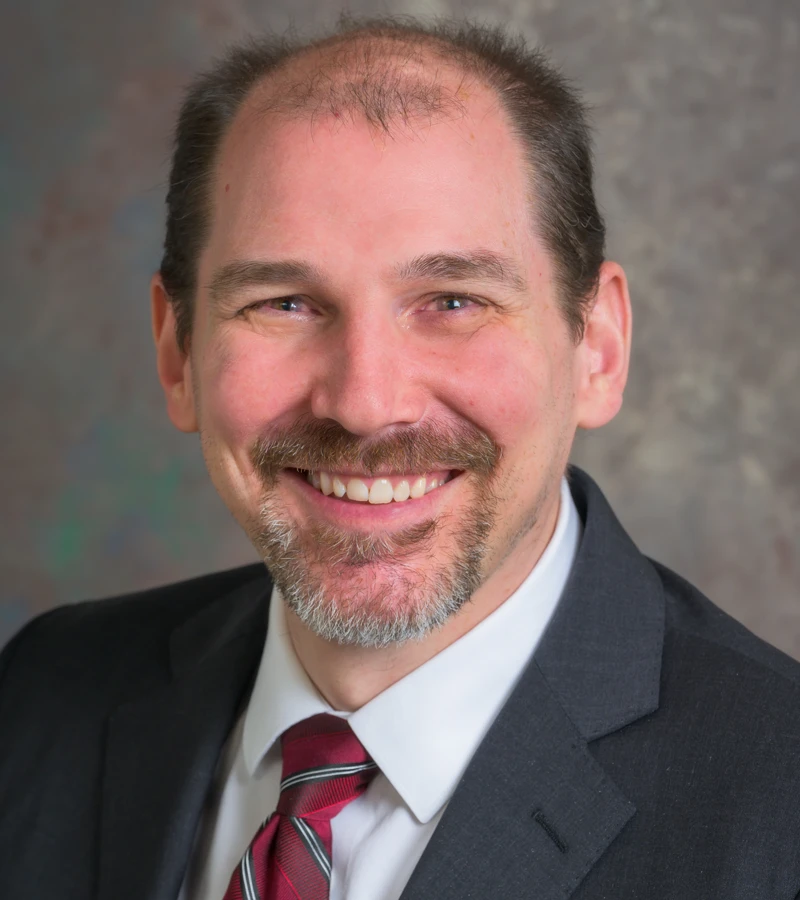
Miguel Garcia-Diaz
Vice President, Research, Scholarship and Innovation
As the University of Delaware’s vice president for research, scholarship and innovation, Miguel Garcia-Diaz has responsibility for advancing the University’s research and innovation enterprise including oversight of the Research Office, 10 University-wide research institutes and centers, 12 research core facilities and the Office of Economic Innovation and Partnerships (OEIP).
An accomplished administrator, researcher and educator, previously he served as interim vice president for research at Stony Brook University, providing oversight for research administration, strategy, policy, technology transfer and economic development. He also was the institution’s operations manager for the SUNY Research Foundation, a private nonprofit that brings together leadership across the SUNY campuses to cultivate innovation and entrepreneurship in priority areas, including artificial intelligence, clean energy, biotechnology, longevity, addiction, environmental health and quantum computing.
A structural biologist, Garcia-Diaz has focused his own research on understanding how mitochondria — the power plants in cells — build the different structures needed for cellular respiration and energy production, a process called mitochondrial biogenesis. The mitochondrial genome has 37 genes, and genetic defects that impair mitochondrial biogenesis can affect the ability of cells to produce enough energy, causing a myriad of genetic diseases that can result in a variety of often severe health problems.
Throughout his career, Garcia-Diaz has had a deep commitment to developing the next generation of researchers. Previously, at Stony Brook, he served as director of the T32 Training Program in Pharmacological Sciences for predoctoral students. He also co-directed the Institutional Research and Academic Career Development Award (IRACDA) Training Program, which seeks to develop a diverse group of highly trained scientists to address the nation’s biomedical, behavioral and clinical research needs. Both programs are supported by the National Institutes of Health (NIH).
Garcia-Diaz received his B.S. in biochemistry and Ph.D. in biochemistry and molecular biology from the Universidad Autónoma in Madrid, Spain. He also pursued postdoctoral research as a visiting fellow at NIH’s National Institute of Environmental Health Sciences.
ASSOCIATE VICE PRESIDENT FOR FEDERAL RELATIONS
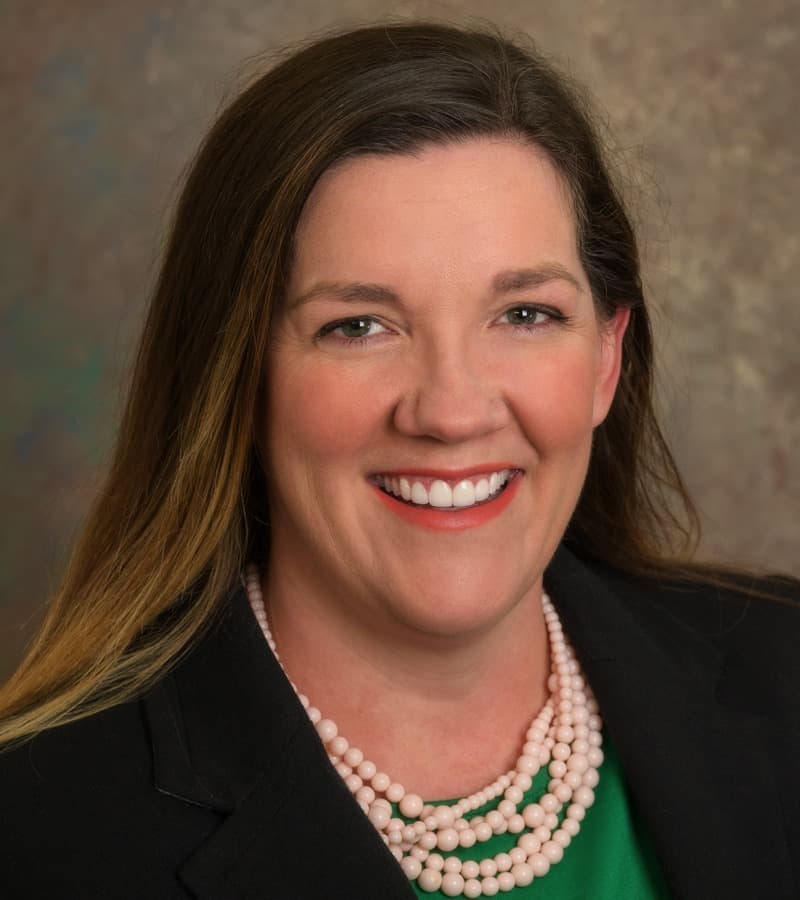
Angela Anderson
Associate Vice President for Federal Relations
Angela Anderson is the director of federal government relations at the University of Delaware, a position she has held since June 2010, when the position was first established at UD.
She represents UD in Washington, D.C., and is responsible for the development and management of strategies to monitor, inform and influence public policy at the federal level on issues and areas of interest to the University and to advise senior administration on legislative matters that may affect UD.
Anderson previously was the State University of New York’s assistant director of federal relations, and prior to that, served as government relations associate and later as acting director of federal relations at Iowa State University from 2004 to 2007.
She has a bachelor’s degree in political science from the University of Iowa and a master’s in political management from George Washington University.
SENIOR DIRECTOR FOR RESEARCH COMMUNICATIONS
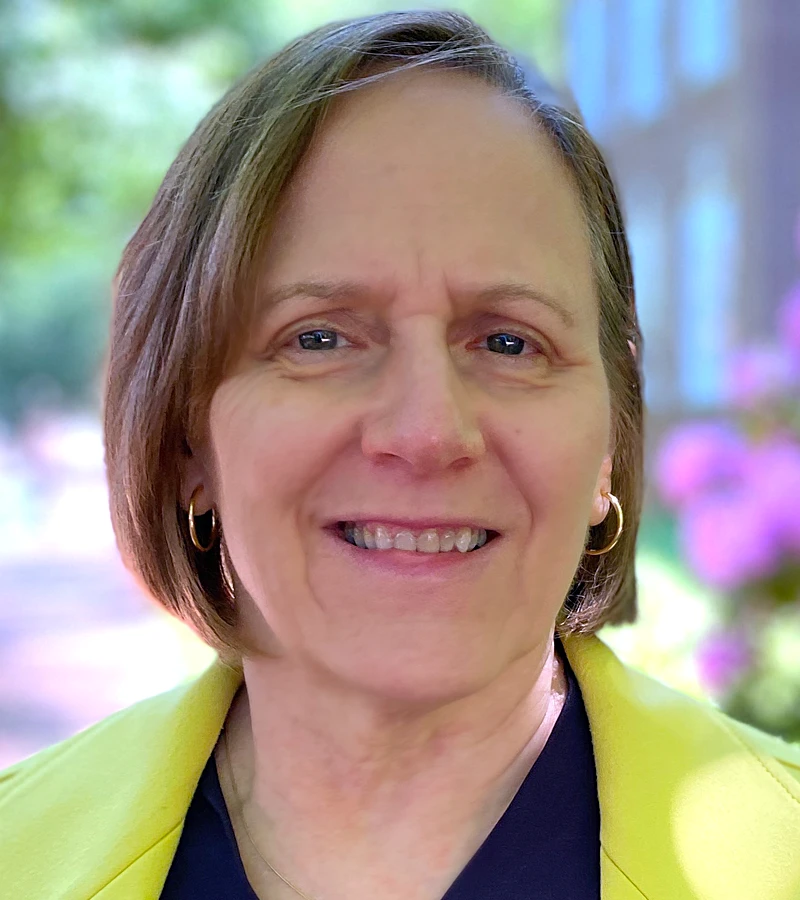
Tracey Bryant
Senior Director for Research Communications
Tracey Bryant directs initiatives that bring UD research discoveries and achievements to light for the public, showcasing UD’s role as a research powerhouse in service to society.
She and her team work closely with researchers across the sciences, engineering and the humanities to make often-complex findings accessible to audiences on local to international levels through compelling stories for the UDaily news service and UD Research magazine, videos, social media, K–12 outreach and other strategic initiatives. She serves as communications liaison to the National Science Foundation, U.S. Department of Energy, National Institutes of Health and other federal research offices.
She has a bachelor’s degree with high honors in general arts and sciences and a master’s degree in English with a concentration in non-fiction writing and editing from Penn State. She has received numerous national and regional awards for communications excellence and impact and was named the Delaware Press Association’s Communicator of Achievement in 2015. She is currently president of URMA, the association for research communicators from universities, nonprofit research centers, agencies and institutes in the U.S. and around the world.
ASSOCIATE VICE PRESIDENT FOR RESEARCH, DIRECTOR DELAWARE INBRE
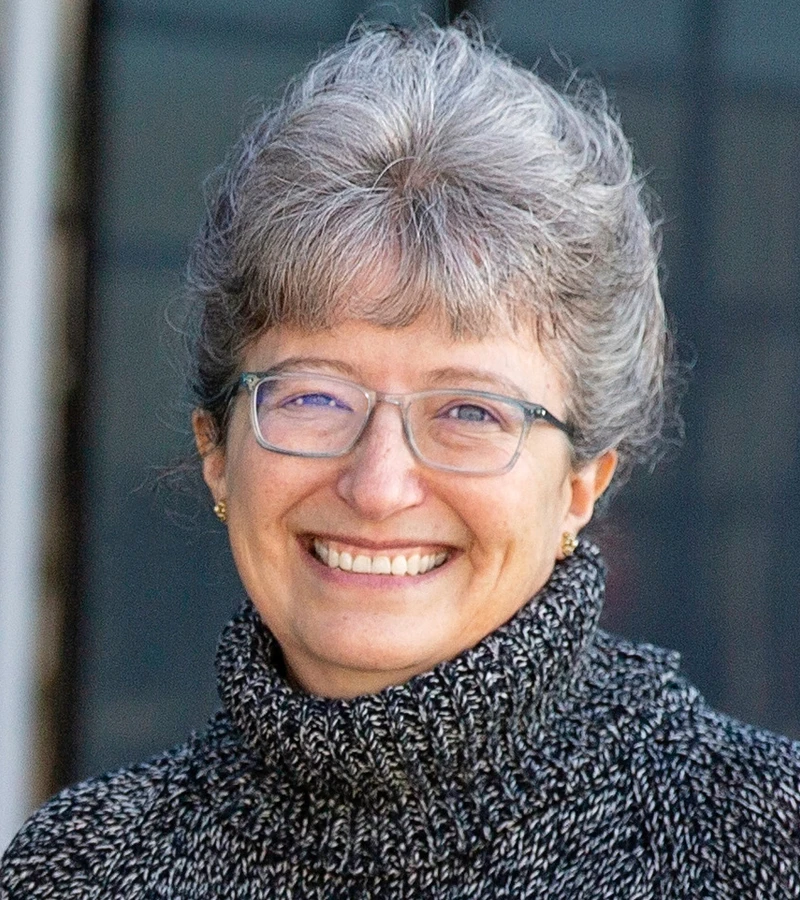
Melinda Duncan
Associar Vice President for Research, Director Delaware INBRE
Melinda Duncan, professor of biological sciences at the University of Delaware, has been involved in research since she was an undergraduate student. She has experience developing innovative research and education programs focused on building Delaware’s biomedical research workforce and infrastructure. Duncan’s own research focuses on the eye, specifically how the ocular lens responds to injury, authoring over 100 publications over her career. Her work has continuously been funded by NIH since 1998. This award, which also made initial investments in infrastructure, such as high-end microscopes and the experts needed to run them, have led to today’s world-class Bio-Imaging Center, a core research facility at UD that assists bioscience researchers in Delaware and far beyond with their studies.
ASSOCIATE VICE PRESIDENT, RESEARCH ADMINISTRATION
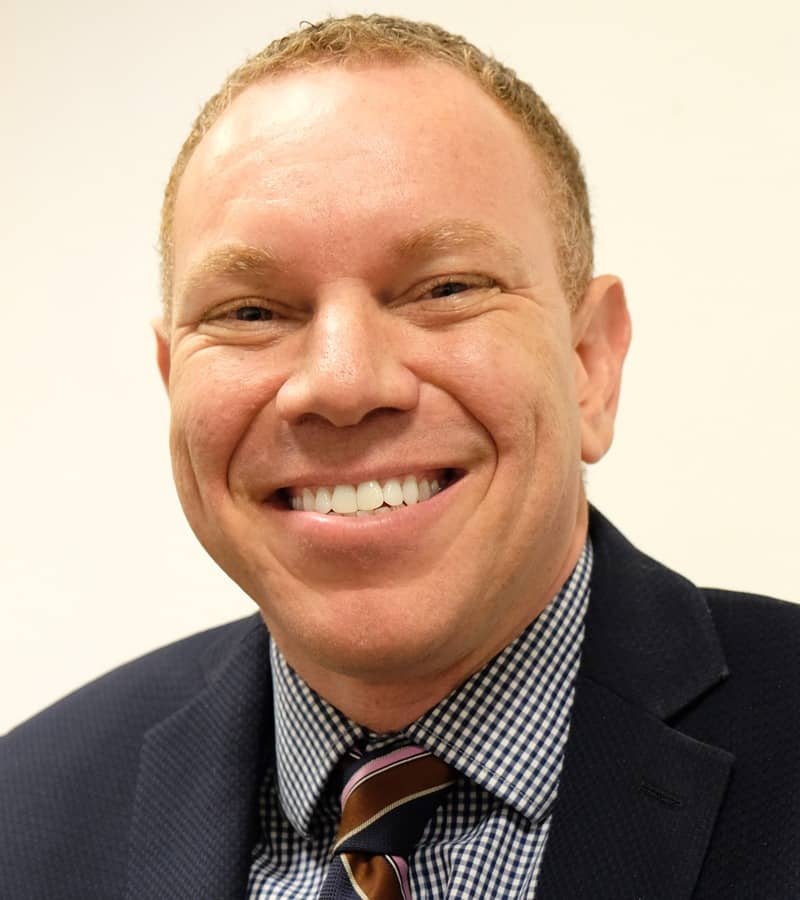
Jeffrey Friedland
Associate Vice President, Research Administration
Jeff Friedland has more than 25 years of experience in research administration. Prior to joining UD, he served as director for more than 10 years of the Office of Research and Project Administration (ORPA) at Princeton University, where he worked to redevelop ORPA as a customer-focused organization, facilitating sponsored research while minimizing researcher administrative burden.
Previously, Friesland was senior assistant director of the Office of Sponsored Programs at the Education Development Center in Newton, Massachusetts, where he worked to develop new policies and guidelines to improve the grants administration of this international nonprofit organization. He also worked for six years in the Office of Sponsored Programs at the Massachusetts Institute of Technology.
A graduate of the University of Massachusetts-Amherst, he previously worked as a contract administrator at the Raytheon Co. and as a contract and financial manager at the Northeast Advanced Vehicle Consortium.
He currently is a board member of the Council of Governmental Relations (COGR).
INTERIM ASSOCIATE VICE PRESIDENT, RESEARCH AND REGULATORY AFFAIRS
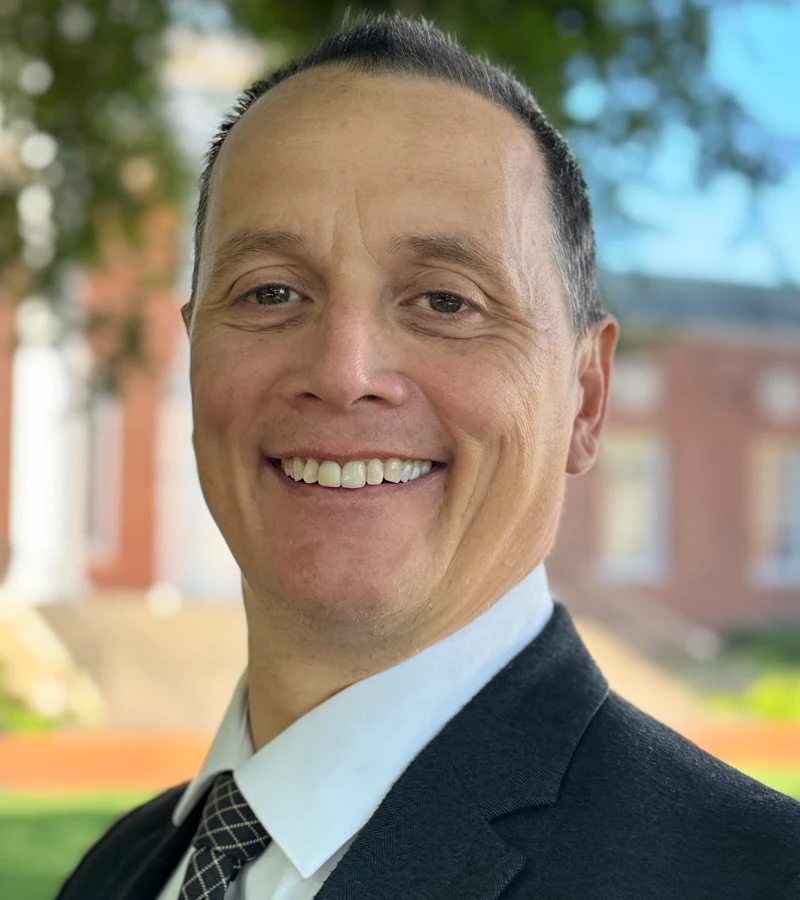
Sean Hayes
Interim Associate Vice President, Research and Regulatory Affairs
Sean Hayes oversees Research and Regulatory Affairs and ensures that the University’s research enterprise complies with state and federal requirements and regulations and university practice and procedures. His responsibilities include reviewing, negotiating, drafting, and implementing a wide range of research-related agreements and ensuring the security of research activities. These responsibilities involve working with university staff and investigators to ensure agreement language and research security are technically appropriate and acceptable.
He worked as a graduate student on the morphology development of galvannealed coatings for the auto industry and on hydrogen embrittlement of titanium alloys for NASA. Following school and prior to joining the University of Delaware Research Office in 2009, he worked as a law firm associate on patent litigation and patent prosecution and at an engineering firm on the mechanical deformation of materials and characterizing material properties.
He earned his doctorate in materials science and engineering from the University of Virginia and bachelor’s and master’s degrees in materials science and engineering from Lehigh University. Following his engineering degrees, he earned his juris doctorate from the University of Virginia School of Law. He is admitted to the Delaware Bar and is a registered patent attorney with the U.S. Patent and Trademark Office.
ASSOCIATE VICE PRESIDENT FOR CLINICAL AND TRANSLATIONAL RESEARCH
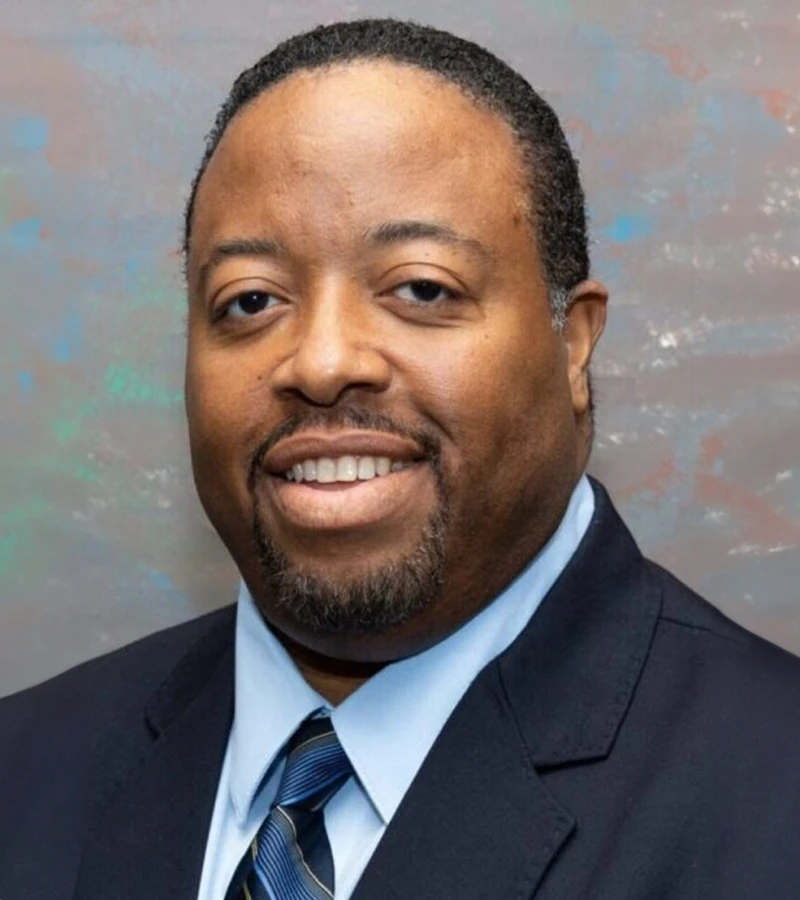
Gregory Hicks
Associate Vice President for Clinical and Translational Research
Gregory E. Hicks, PT, PhD, FAPTA, FGSA is Distinguished Professor of Health Sciences in the Department of Physical Therapy and Associate Vice President for Clinical and Translational Research at the University of Delaware. Dr. Hicks is the Principal Investigator and Program Director for the NIH-funded Delaware ACCEL CTR IDeA Program. The overarching goal of the ACCEL CTR Program is to create a unified Delaware Clinical and Translational Research Community (inclusive of investigators and community members) that breaks down existing barriers, capitalizes on the unique strengths of its partners to establish infrastructure and accelerates the creation of equitable solutions that improve the health of all Delawareans. Four institutions comprise the ACCEL Network, including the University of Delaware (lead institution), Christiana Care Health System, Delaware State University and Nemours Children’s Health.
Dr. Hicks is a clinician-scientist whose laboratory has had significant funding from the National Institutes of Health since 2008, including major funding for projects focused on the development and testing of interventions to improve physical function for older adults with chronic low back pain. He is also a co-director for an NIH-funded Research Education Program designed to develop a sustainable pathway for diverse rehabilitation scientists (Turning the TiDe: Training Diverse Clinician Scientists in Rehabilitation Research [R25HD109110]).
During his tenure at UD, Dr. Hicks has served as deputy dean of the College of Health Sciences and chair of the top-ranked physical therapy department. He is also the founding director of the department’s Advancing Diversity in Physical Therapy (ADaPT) program, designed to increase diversity and inclusion of individuals who are underrepresented within the profession of physical therapy.
Dr. Hicks has provided significant professional service in support of the biomedical research community. He has served in the following roles: chair of the National Advisory Board on Medical Rehabilitation Research for NIH; chartered member of an NIH study section; regular ad hoc grant reviewer for NIH; and external advisor to multiple federally funded research programs. He currently serves as Associate Editor for the Journal of Gerontology: Medical Sciences and the Physical Therapy & Rehabilitation Journal. He has been named a Catherine Worthingham Fellow, the American Physical Therapy Association’s highest membership category, as well as a Fellow of the Gerontological Society of America. Dr. Hicks received two B.A. degrees (Biology/English) and a MPT degree from the University of Delaware, a Ph.D. from the University of Pittsburgh and was a postdoctoral fellow at the National Institute on Aging.
ASSOCIATE VICE PRESIDENT, OFFICE OF ECONOMIC INNOVATION AND PARTNERSHIPS
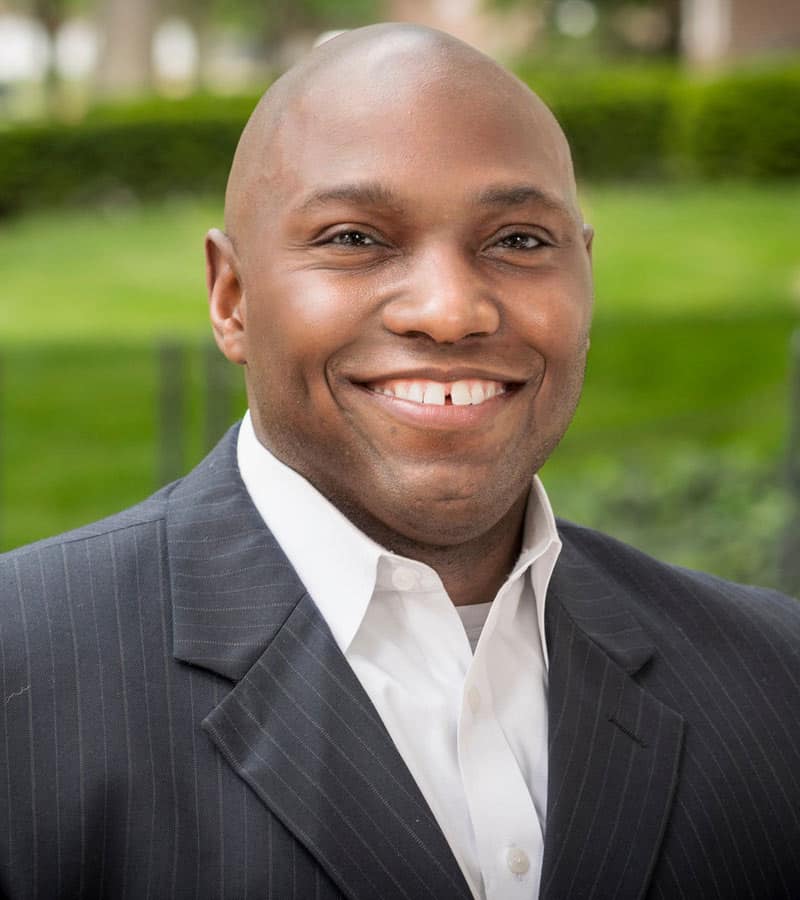
Julius Korley
Associate Vice President, UD’s Office of Economic Innovation and Partnerships
Julius Korley has expertise in several areas of biotechnology, including biomaterials, drug development, drug delivery systems and medical device development. He also has significant experience in the startup and business arena, including fundraising, business development, strategic partnering and licensing activities.
Currently, Korley is co-director of the NSF I-Corps Northeast Hub, a $15 million National Science Foundation effort headquartered at Princeton University, which involves UD and other regional partners and affiliates in accelerating the economic impact of federally funded research by building entrepreneurship skills among researchers from all backgrounds. He also serves on the national faculty for I-Corps at the National Institutes of Health and is UD’s principal investigator in NIH’s DRIVEN Accelerator Hub, fostering medical entrepreneurship in the Northeast.
Previously, as the director of entrepreneurship and strategic partnerships for UD’s College of Engineering, Korley assisted faculty, postdoctoral researchers and students in developing their technologies and connecting them to the startup and industry communities.
Prior to his UD career, Korley served as associate director of the Case-Coulter Translational Research Partnership at Case Western Reserve University, where he focused on translational medicine and the commercialization of laboratory technologies addressing unmet or poorly met health care needs. He oversaw more than 70 technologies leading to over $75 million in follow-on funding, 13 licensed technologies, 11 startups and 16 technologies in human clinical trials.
Korley has firsthand experience in entrepreneurship. Immediately prior to graduate school, he worked at Momenta Pharmaceuticals (MNTA) when it was a startup. The company was acquired by Johnson & Johnson in October 2020. He also co-founded the biomedical engineering company Affinity Therapeutics in 2010 and was named its inaugural president and CEO in August 2015.
He earned his doctorate in biomedical engineering at Cornell University and his MBA at the Weatherhead School of Management at Case Western Reserve University.
ASSOCIATE VICE PRESIDENT, CORPORATE ENGAGEMENT
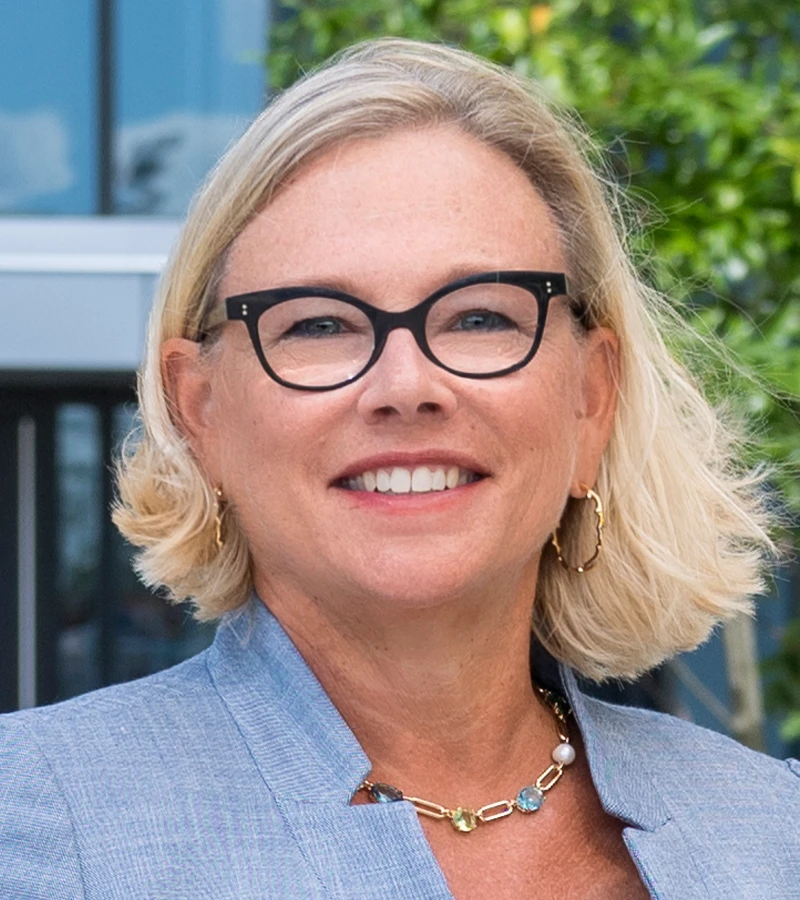
Tracy Shickel
Associate Vice President, Corporate Engagement
Tracy Shickel is the Associate Vice President of Corporate Engagement at the University of Delaware (UD). In this role, Tracy leads university-wide external engagement and innovation-based economic development including growth of the University’s Science Technology and Advanced Research (STAR) Campus. Tracy’s background prior to UD includes extensive strategy development and commercial leadership with chemicals, biologics and advanced materials innovators such as WL Gore, DuPont, FMC and Monsanto.
Tracy is a connector, supporter and facilitator of regional innovation and entrepreneurship activities and serves on various boards committed to creating vibrant ecosystems including Delaware Bioscience Association, Center for Accelerating Financial Equity (CAFE), UD Horn Entrepreneurship (Chair Emerita), and Association of University Research Parks (AURP). Tracy holds a Bachelor’s Degree in Business Administration and Marketing Management from the University of Delaware.
ASSOCIATE VICE PRESIDENT, HUMAN RESEARCH

Karin Gravare Silbernagel
Associate Vice President for Human Research
Karin Grävare Silbernagel is Associate Vice President for Human Research and Director of the Center for Human Research Coordination (CHRC) at the University of Delaware. CHRC supports human subjects research across campus, assisting with participant recruitment, logistics, and data management. The center also promotes inclusive research participation and provides REDCap and registry support for UD investigators.
Dr. Silbernagel earned her Physical Therapy and Athletic Training degrees from Boston University, followed by a Master’s and PhD from the University of Gothenburg in Sweden. Her career spans over 34 years, including more than a decade of full-time work in sports medicine—ranging from clinical care in semi-professional sports to consulting for professional sports organizations in the U.S. and internationally.
Her expertise lies in orthopaedics and the management of musculoskeletal injuries, particularly tendon and ligament injuries. At the University of Delaware, she leads the Delaware Tendon Research Group. With over 180 peer-reviewed publications, her research has significantly influenced clinical practice, and her findings have been directly incorporated into international clinical guidelines for the treatment of tendon injuries.
Dr. Silbernagel’s innovative research approach evaluates the multifactorial nature of tendon and ligament injuries—including tendon composition and mechanical properties, functional performance, gait mechanics, symptoms, and biopsychosocial factors. Her goal is to develop precision rehabilitation strategies that address the heterogeneity in injury presentation and optimize patient outcomes. Her work has been supported by major funding from the National Institutes of Health (NIH) since 2013.
DIRECTOR, EPSCoR
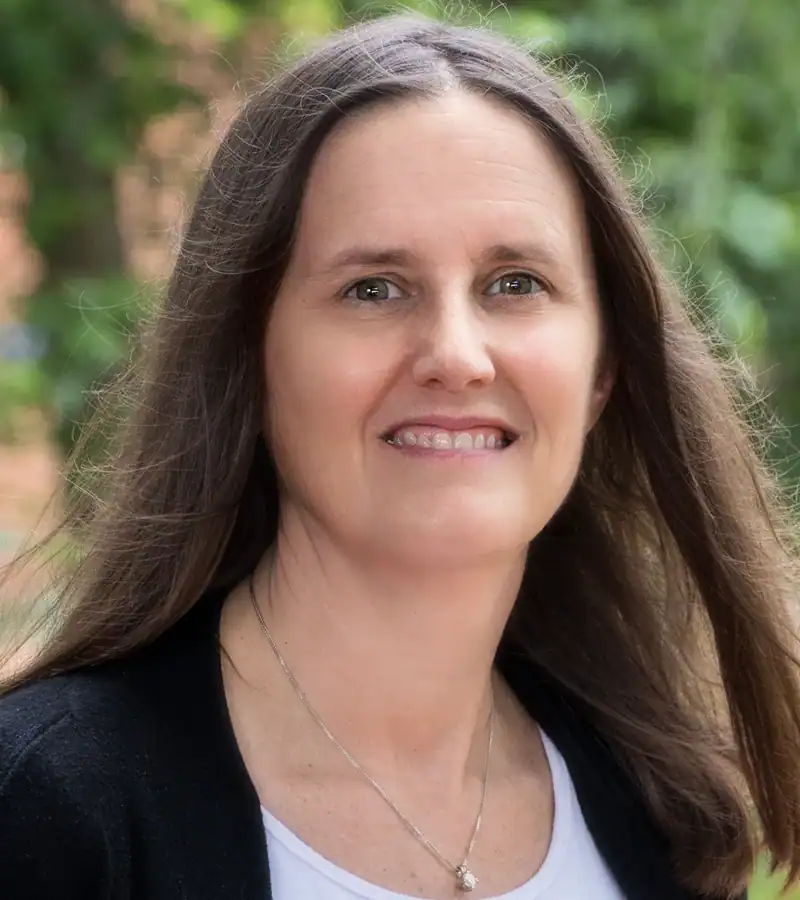
Amy L. Slocum
Director, Delaware Established Program to Stimulate Competitive Research at the University of Delaware
Amy Slocum serves as the Director, Delaware Established Program to Stimulate Competitive Research (EPSCoR). She received her doctorate degree in 2006 in Education, Policy, Leadership and Administration and a Master Degree in Public Administration in 2000 both from the University of Delaware. She has over 27 years of grants management and administration experience. She is actively involved in reporting, accounting and facilitating economic development initiatives with partners both within and outside the University of Delaware. In her role as a pre-post award administrator, she has managed and supported more than 64 interdisciplinary federal projects (including Delaware EPSCoR programs) totaling $167 million that bridge science and society that support early career faculty and postdoctoral researchers. She is currently a PI on an EPSCoR E-CORE that expands interdisciplinary, collaborative research; builds stronger strategic alliances among academic institutions, industry, and government; and creates new education, entrepreneurial, and training opportunities for researchers.
SENIOR ASSOCIATE VICE PRESIDENT FOR RESEARCH

K. Eric Wommack
Senior Associate Vice President for Research
Eric Wommack leads the research development team in advancing faculty collaborations and high-profile, cutting-edge research initiatives, including the establishment of successful research center grants and programs across multiple academic disciplines. His team also provides assistance to investigators in coordinating large-scale, multidisciplinary proposals and offers educational workshops and other opportunities for strengthening faculty research capabilities.
As a microbial ecologist, Wommack is no stranger to interdisciplinary research. He also is used to breaking new ground in a field that has been in existence for only about the past 50 years. Complementing his administrative role, he plans to continue with his research on the planet’s viruses, which, as he said, “have taken him everywhere,” from deep-sea hydrothermal vents to poultry production houses to the human gut, and lots of places in between — including agricultural soils, the stomachs of beef and dairy cattle, and soybeans with their nitrogen-fixing bacteria, to name only a few.
Wommack earned his doctorate in marine estuarine environmental sciences from the University of Maryland-College Park, a master’s degree in physiology from the University of St. Andrews in St. Andrews, Scotland, and both a bachelor of science with honors in biology and bachelor of arts in economics from Emory University.
He holds faculty appointments across UD, in the Department of Plant and Soil Sciences in the College of Agriculture and Natural Resources and at the Delaware Biotechnology Institute; the School of Marine Science and Policy in the College of Earth, Ocean and Environment; and the Department of Biological Sciences in the College of Arts and Sciences.

